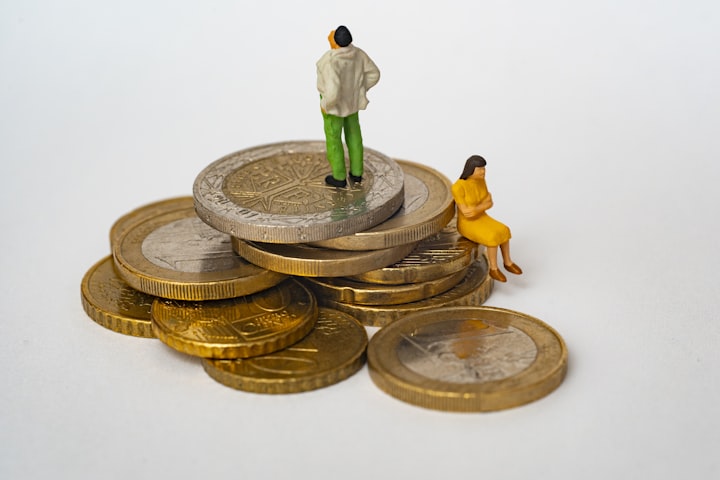
Money has long been seen as the key to happiness and success in modern society. Many people believe that the more money they have, the happier they will be. However, recent studies have shown that the relationship between money and happiness is not as straightforward as many people assume.
In fact, the link between money and happiness is much more complex than most people realize. While wealth can certainly make life easier and more comfortable, it doesn't guarantee happiness. In fact, many people who are wealthy are surprisingly unhappy, while many people with much less money are very happy.
So what is the surprising link between money and happiness, and how can we use this knowledge to live happier lives?
First, it's important to understand that money can provide basic needs and security, which are essential for happiness. People who are struggling to make ends meet or who are worried about paying bills are unlikely to be happy, regardless of other factors. Having enough money to meet basic needs and live comfortably can certainly contribute to happiness.
However, beyond a certain point, more money doesn't necessarily lead to more happiness. In fact, studies have shown that once people's basic needs are met, additional money has a diminishing impact on happiness. This means that beyond a certain income level, more money is unlikely to make you significantly happier.

So if wealth alone doesn't guarantee happiness, what does? Research has shown that factors like social connections, meaningful work, and personal fulfillment are much more important to overall happiness than money. People who have strong relationships with family and friends, who feel a sense of purpose in their work, and who pursue activities that they enjoy and find fulfilling are much more likely to be happy than those who are focused solely on accumulating wealth.
Additionally, studies have shown that experiences are often more fulfilling than material possessions. People who spend their money on experiences like travel, concerts, or cultural events are often happier than those who spend their money on possessions like cars or jewelry. This is because experiences provide lasting memories and a sense of personal growth and fulfillment, whereas possessions often lose their appeal over time.

Another surprising factor in the link between money and happiness is the importance of giving back. Research has shown that people who give to others, whether through charitable donations or volunteer work, are often happier than those who keep their money to themselves. This is because giving to others can create a sense of purpose and fulfillment, and can also strengthen social connections and relationships.
Another factor to consider in the relationship between money and happiness is the role of financial stress. Even if someone has enough money to meet their basic needs and live comfortably, financial stress and worry can still impact their happiness. This can include concerns about debt, unexpected expenses, or uncertainty about the future. Therefore, financial stability and planning can be important factors in overall happiness.
Furthermore, the way people spend their money can also impact their happiness. For example, using money to buy time can lead to greater happiness. This could involve outsourcing household chores, like cleaning or grocery shopping, to free up time for more enjoyable activities or spending time with loved ones. Similarly, investing in education or skills development can lead to greater happiness and personal fulfillment, as well as potentially increasing earning potential in the future.
It's also important to note that the relationship between money and happiness can vary depending on cultural and individual factors. For example, some cultures may place more emphasis on community and social connections than on individual wealth, while others may prioritize material possessions. Additionally, individuals may have different values and priorities that influence how they view money and happiness.
Overall, while money can play a role in happiness, it's important to recognize the limitations of its impact and to prioritize other factors like social connections, personal fulfillment, and giving back. By focusing on these factors and adopting healthy financial habits, individuals can work towards greater happiness and fulfillment in their lives.
In conclusion, while money can certainly contribute to happiness by providing basic needs and security, it doesn't guarantee happiness on its own. Beyond a certain point, more money doesn't necessarily lead to more happiness, and factors like social connections, meaningful work, and personal fulfillment are much more important to overall happiness. By focusing on these factors and prioritizing experiences and giving back, we can create happier, more fulfilling lives regardless of our income level.





Comments
There are no comments for this story
Be the first to respond and start the conversation.